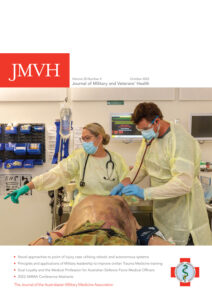Editorial – EIGHTY YEARS ON – EL ALAMEIN
EIGHTY YEARS ON – EL ALAMEIN For Australians serving in the Second World War, 1942 proved to be a turning point in many theatres. In North Africa, the first and second Battles of El Alamein between July and November 1942 prevented the Axis forces from advancing further into Egypt. The victory was the beginning of… Read more »




 Download the whole edition here.
Download the whole edition here.


